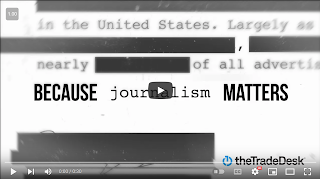 |
| Late Show monolog mock-up |
First, a gift for Torts II students, from Stephen Colbert: In a monolog on the retirement of Justice Stephen Breyer, Colbert on The Late Show with Stephen Colbert played on the word "torts" to joke about Justice Breyer's stated intention to refine his cooking skills in retirement. "From Torts to Tarts," Colbert said (cue 2:31), suggesting a name and mock cover for a forthcoming Supreme Cookbook.
The U.S. Supreme Court of course does not often deal directly with
torts, or civil wrongs, which are mostly matters of state law in the
United States. It's often a source of misunderstanding for foreign
lawyers and new American law students who must learn that SCOTUS is not "the highest court in the land" (even besides that one) when it comes to torts.
That said, a good deal of tort law finds its way to the federal high court on all kinds of paths. Federal courts routinely apply state law in multi-district litigation, including mass tort claims, and in matters involving both federal and state claims. State tort claims can become mixed with federal questions in problems of constitutional defenses and preemption. Federal "common law" persists in places of original federal jurisdiction, as in maritime matters. And the trial of civil wrongs recognized in federal law, such as civil rights, can borrow the "machinery" of state tort law, both procedural, as in application of a statute of limitations, and substantive, as in apprehension of proximate causation.
For Law360, Emily Field and Y. Peter Kang yesterday detailed six must-know Breyer opinions in product and personal injury liability. These are their six cases (with links to Oyez), which they flesh out in the article (subscription required).
- Due process / civil procedure / personal jurisdiction: J. McIntyre Machinery, Ltd. v. Nicastro (U.S. 2011), denying state personal jurisdiction for less than minimum contact by British machine manufacturer that marketed its product in United States (Breyer, J., concurring, joined by Alito, J., in plurality opinion of Kennedy, J., in 6-3 decision)
- Due process / punitive damages / product liability: Philip Morris USA v. Williams (U.S. 2007), holding that federal constitutional due process precludes a state punitive damages award predicated on injury inflicted on non-parties, i.e., even like injury on persons like the plaintiff, but not before the court (Breyer, J., for the 5-4 majority, joined by Roberts, C.J., and Alito, Kennedy, and Souter, JJ.).
- Preemption / product liability / warning defect: Merck Sharp & Dohme Corp. v. Albrecht (U.S. 2019), holding that FDA regulatory decision might or might not preempt state warning defect claim, and question is one of law for the court (Breyer, J., for the majority, in part unanimous, in part 6-3, joined by Ginsburg, Gorsuch, Kagan, Sotomayor, and Thomas, JJ.).
- Preemption / product liability / design defect: Williamson v. Mazda Motor of Am., Inc. (U.S. 2011), holding that flexible federal regulatory standard did not preempt state claim against automaker (Breyer, J., unanimous decision).
- Evidence / experts: Kumho Tire Co. v. Carmichael (U.S. 1999), extending test for admissibility of scientific evidence to other technical expertise (Breyer, J., unanimous decision).
- Arbitration / class action: Green Tree Financial Corp. v. Bazzle (U.S. 2003), leaving to arbitrator to decide whether to permit class action when arbitration agreement was silent on the question (Breyer, J., for a plurality, 5-4 decision, joined by Ginsburg, Scalia, and Souter, JJ., and Stevens, J., concurring).
The article is Emily Field & Y. Peter Kang, 6 Breyer Product, Personal Injury Opinions Attys
Should Know, Law360 (Jan. 27, 2022) (subscription required).
Second, a gift for Comparative Law students, from Trevor Noah: On The Daily Show with Trevor Noah, Noah reported on actor Peter Dinklage's criticism of Disney's planned live-action reboot of Snow White and the Seven Dwarves (1937). There have been other versions; the story is derived from fairy tales that were included in the first Grimms' in 1812. Dinklage, who has dwarfism, wondered at the inconsistent wokeness of casting Latina actress Rachel Zegler as the lead, while continuing to work with a story about "seven dwarves living in a cave."
While acknowledging Dinklage's objection as legitimate, Noah admitted, "I've never watched Snow White and found the dwarves offensive. All right? But I do understand what he's talking about. I genuinely do. Because if that movie was called 'Snow White and the Seven Blacks,' I mean, that would be weird."
Noah's take nicely illustrates one dimension of the perspective problem in social research, and it's especially salient in comparative law. Like Noah, I never thought about the seven dwarves as an insulting characterization of people with dwarfism. But after hearing Dinklage's perspective from within the dwarfism community, I can perform a "mental rotation" (to use the psych term) and empathize.
The problem when researching law and society in an unfamiliar context, whether it's a shared physical condition, a religion, or a political state, is that my perspective is shaped by my own limited experience in ways that I might not even be conscious of. The perspective problem can never be entirely eliminated in social research, but it can be mitigated. It's helpful to think consciously about one's perspective to gain some cognizance of the limitations of one's research.
As to the Seven Dwarves of fairy-tale fame, Disney announced that it is "taking a different approach with these seven characters and ha[s] been consulting with members of the dwarfism community." I look forward to what creative minds will yield.
Incidentally, in the same Daily Show, Noah did an excellent piece on insider trading in Congress. Just last week I noted a publication on the subject by Spencer K. Schneider, a former teaching assistant of mine. I added a video embed from Comedy Central to the bottom of that post.










